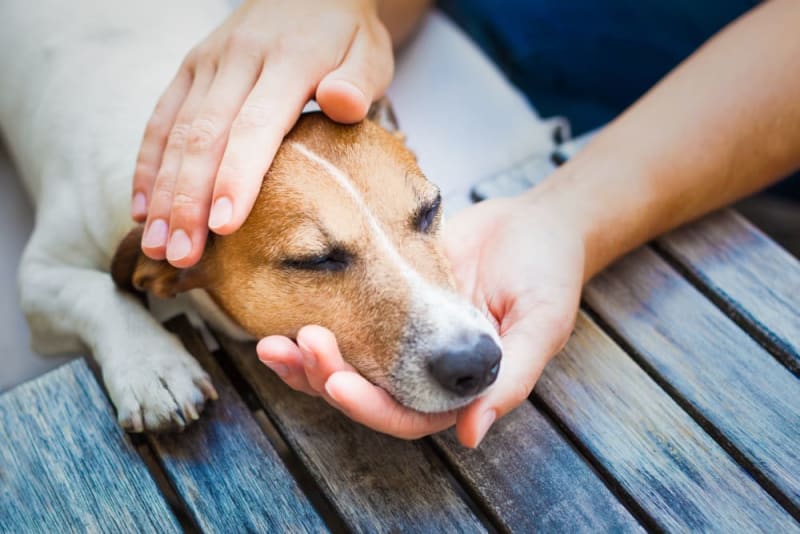Hookworms in dogs are a common but serious health concern that pet owners should be aware of. These tiny parasites can wreak havoc on your dog’s health, leading to a variety of symptoms that range from mild to life-threatening. In this article, we will dive deep into what hookworms are, how they affect dogs, and the steps you can take to treat and prevent them. By the end, you will have a comprehensive understanding of hookworms in dogs and how to keep your pet safe from these harmful parasites.
What are Hookworms in Dogs?
Hookworms are small, thin parasites that live in the intestines of dogs. Despite their small size, they can cause significant health issues. These parasites feed on the blood of their host, which can lead to anemia and other complications in dogs. Hookworms in dogs are particularly concerning because they can spread easily and have a significant impact on a dog’s overall health.
The most common species of hookworms in dogs are Ancylostoma caninum and Uncinaria stenocephala. These hookworms can infect dogs at any age but are especially dangerous to puppies. Understanding how these parasites work and how they affect your dog is crucial for early detection and treatment.
How Do Dogs Get Hookworms?
Dogs can get hookworms in several ways, making it important to recognize the various modes of transmission. One common way dogs get hookworms is by ingesting hookworm eggs or larvae from contaminated soil, feces, or food. Dogs that frequently explore outdoor areas are more prone to exposure. Puppies, in particular, can become infected with hookworms through their mother’s milk, as hookworm larvae can pass through the mammary glands.
Another way dogs get hookworms is through direct skin penetration. Hookworm larvae in contaminated environments can penetrate a dog’s skin, usually through the paws or belly. Once inside the body, the larvae travel to the lungs, are coughed up, swallowed, and eventually reach the intestines, where they mature and reproduce.
Knowing how dogs get hookworms can help you take preventive measures to reduce the risk of infection.
Symptoms of Hookworms in Dogs
The symptoms of hookworms in dogs can vary depending on the severity of the infection. In some cases, dogs may not show any signs at all, especially if the infection is mild. However, as the number of hookworms increases, the symptoms become more noticeable.
Common signs of hookworms in dogs include:
- Anemia: Since hookworms feed on blood, dogs with severe infections may become anemic. Pale gums, lethargy, and weakness are often indicators of anemia caused by hookworms in dogs.
- Diarrhea: Hookworm infection in dogs often leads to gastrointestinal issues, such as diarrhea, which may contain blood.
- Weight Loss: Hookworms deplete nutrients, leading to weight loss even when a dog is eating normally.
- Coughing: If hookworm larvae have traveled to the lungs, dogs may develop a persistent cough.
- Poor Coat Condition: Dogs infected with hookworms may have a dull, unhealthy coat due to nutrient deficiencies.
Recognizing these symptoms of hookworms in dogs is critical for early diagnosis and treatment.
Diagnosis of Hookworms in Dogs
If you suspect your dog may have hookworms, it’s essential to get a proper diagnosis from a veterinarian. The vet will usually perform a fecal examination to check for hookworm eggs in the stool. This test is simple and effective, as hookworm eggs are typically present in the feces of infected dogs.
In more severe cases, additional tests may be necessary to evaluate the overall health of the dog, including blood tests to check for anemia. A thorough diagnosis of hookworms in dogs ensures that the right treatment plan can be implemented.
Treatment for Hookworms in Dogs
Once hookworms have been diagnosed, treatment for hookworms in dogs typically involves administering deworming medications. These medications are highly effective in killing adult hookworms in the intestines. Common hookworm medication for dogs includes pyrantel pamoate, fenbendazole, and milbemycin oxime. These drugs work by paralyzing and expelling the hookworms from the dog’s system.
It’s important to note that these medications only target adult hookworms, so follow-up treatments may be required to eliminate newly hatched larvae. Your vet will likely recommend repeating the medication after a few weeks to ensure all hookworms are removed. Deworming for hookworms in dogs is usually straightforward, but it is vital to follow your vet’s instructions closely to avoid reinfection.
Can Humans Get Hookworms from Dogs?
A common concern among dog owners is whether humans can get hookworms from dogs. The answer is yes, humans can contract hookworms, although it is relatively rare. The transmission of hookworms to humans usually occurs through direct contact with contaminated soil or surfaces, especially if you walk barefoot in areas where infected dogs have defecated.
Hookworm larvae can penetrate human skin, causing a condition called cutaneous larva migrans, which results in an itchy, red rash. In some cases, larvae can travel deeper into the body, although this is less common.
To prevent the spread of hookworms to humans, practice good hygiene and avoid walking barefoot in areas where hookworm infection in dogs may be present. Regular cleaning of your dog’s living area and proper disposal of feces are also crucial steps in preventing hookworm transmission.

Natural Remedies for Hookworms in Dogs
In addition to traditional deworming medications, some pet owners explore natural remedies for hookworms in dogs. While these methods should not replace veterinary care, they can be used as supplementary treatments to support your dog’s overall health.
- Pumpkin Seeds: Pumpkin seeds are believed to contain compounds that can help expel parasites from the digestive tract.
- Garlic: Although garlic can be toxic in large amounts, small, carefully administered doses may help fight parasites like hookworms. Always consult your vet before giving your dog garlic.
- Diatomaceous Earth: This natural powder is sometimes added to dog food to help eliminate parasites, including hookworms.
While natural remedies for hookworms in dogs can be helpful, always seek veterinary advice before trying alternative treatments.
Hookworm Prevention in Dogs
Preventing hookworms in dogs is far easier than treating an active infection. The best way to prevent hookworms is by maintaining regular deworming schedules as recommended by your vet. Most heartworm preventatives also protect against hookworms, so ensuring your dog is on a monthly prevention plan can drastically reduce the risk of infection.
Additionally, cleaning up after your dog in public spaces, keeping them away from contaminated areas, and practicing good hygiene are essential measures to prevent hookworm transmission. Hookworm prevention in puppies is particularly important, as they are more susceptible to severe infections.
Hookworm Life Cycle in Dogs
The hookworm life cycle in dogs plays a crucial role in understanding how the infection spreads and persists. Adult hookworms live in the intestines of infected dogs, where they feed on blood and lay eggs. These eggs are passed out through the dog’s feces and hatch into larvae in the environment. These larvae can survive for weeks, waiting to infect another host.
The larvae either penetrate the skin of a new host or are ingested. Once inside the body, they migrate to the lungs and are coughed up and swallowed, eventually reaching the intestines to mature into adult hookworms. This continuous cycle of reinfection is why consistent preventive care is critical in controlling hookworms in dogs.
Long-term Effects of Hookworms in Dogs
If left untreated, hookworms in dogs can lead to long-term health issues, particularly in puppies and older dogs. Severe hookworm infections can cause life-threatening anemia, malnutrition, and stunted growth in puppies. In adult dogs, chronic infections may weaken the immune system and make them more vulnerable to other health problems.
Even after treatment, dogs that have experienced severe hookworm infections may require ongoing care to recover fully. A balanced diet, regular vet check-ups, and preventive measures will ensure your dog stays healthy after an infection.
Conclusion
Hookworms in dogs are a serious but manageable health issue that all pet owners should be aware of. From understanding the symptoms of hookworms in dogs to learning how dogs get hookworms and the available treatments, this guide provides comprehensive information to help keep your furry friend safe. Regular deworming, good hygiene, and prompt veterinary care are essential to preventing and managing hookworm infections.
Also read: The Ultimate Guide to Choosing the Perfect Dog Harness





